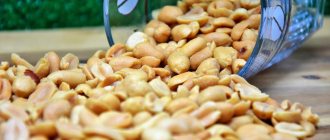In previous articles, we have already talked to you about the types of meat in a dog’s diet and figured out which vegetables are good for them. It’s time to discuss another building block of natural nutrition - cottage cheese and other fermented milk products. Surprisingly, even this topic is not without myths and heated debates. Thus, many modern veterinarians and nutritionists have spoken out against these products, arguing that they are not part of the natural diet of canines and cannot be sufficiently absorbed by them, that is, they do not provide any benefit. At the same time, breeders and many owners, on the contrary, are sounding the alarm and trying with all their might to stuff a couple of spoons of cottage cheese into their restless child.
Cottage cheese for dogs and puppies
Fermented milk treats in the diet of four-legged animals cause a lot of controversy among owners. What kind of cottage cheese is actually good to give to a dog and how often can it be done?
Is it possible to give?
Fermented milk food is as important in the natural diet of four-legged animals as vegetables. It promotes the development of intestinal microflora, which has a beneficial effect on digestion and immunity. In addition, for puppies, cottage cheese and kefir are a source of calcium necessary for bones and teeth.
However, cottage cheese is not a necessary food in a dog’s diet, although its presence is desirable. It can be replaced by vegetables, offal and kefir.
Sometimes veterinarians prescribe a low-protein diet for weevils. Then part of the meat in the pet’s diet is replaced with cottage cheese.
Portion volume and frequency
It’s definitely not worth feeding your dog fermented milk - a couple of times a week, replacing meat, is enough. Or 3-4 times a week, but 100 g each, mixing it with the main food. There is no need to give these treats every day: they can cause excess calcium in the body and lead to diarrhea.
The situation with babies is different: for puppies, cottage cheese serves as the first complementary food, and they need to be fed in a 50/50 ratio with meat. As the child grows, you need to gradually increase the percentage of meat in the bowl, but do not remove the dairy product completely.
There are people who are categorically against mixing cottage cheese and meat in one plate. They offer dairy products separately or mixed with vegetables and fruits.
Remember: if your pet flatly refuses sour milk, don’t force it. Perhaps your wet-nosed friend simply doesn’t need them. Or it’s all about the unpleasant taste of a particular brand - just buy products from another company and try feeding it to an animal.
Remember that it is better for young pets of large breeds (shepherd dogs, huskies, retrievers, etc.) to consume fermented milk to a minimum, because these dogs already grow quickly - and an excess of calcium in the body can lead to various diseases.
Which product to choose
Buy regular cottage cheese - low-fat cottage cheese has no benefit or taste. Optimal – 9-11% fat content. If the composition does not contain vegetable fat, then you can safely buy it. Kids can take even 15 percent cottage cheese.
It happens that a pet reacts to a product from a certain manufacturer with regurgitation and diarrhea. But this does not mean that all cottage cheese is prohibited in this case. Perhaps your pet will like a different brand of sour milk more.
Offer the cottage cheese softer to a puppy than to an adult dog. It’s better to mash it thoroughly with a fork and add a little kefir until you get the consistency of thick sour cream.
When choosing fermented milk in a store, pay attention to the composition: it should not contain sugar, vegetable fats, flavorings or other additives. It must be manufactured only in accordance with GOST, and the shelf life is short - this is an indicator of the absence of preservatives.
Do not think that only natural products await you in the markets. Be sure to ask for a quality certificate and a veterinary certificate. If they refuse to provide them to you, do not buy cottage cheese, because it is most likely just a curd product, and dogs cannot eat it.
It is best if you make your own cottage cheese from the raw materials of which you are confident. Then the problem of what kind of cottage cheese to give the dog will disappear by itself.
Please note that it should not be subjected to heat treatment, since in this state it will not be absorbed by the animal’s body. For this reason, you should not feed dogs casseroles, cheesecakes, etc. Not only is the cottage cheese in this food thermally processed, they are also full of other additives harmful to four-legged dogs.
If you prepare the dairy product yourself, do not pour out the liquid from underneath it (whey). It is also very useful for dogs.
Training video
Useful videos from an experienced veterinarian who will tell you whether puppies or dogs can be given milk and up to what age?
Whether or not to use dairy products when feeding a puppy or an adult dog is up to each owner to decide for himself. We wanted to help you make an informed, thoughtful decision. And, of course, we are interested to know how useful the information we prepared for you was.
Share your experience and take part in the discussion. Probably, your personal experience will be useful for dog owners and you will help avoid problems for your like-minded people who sincerely love these cute, funny, strong and loyal tailed friends of man.
Can dogs and puppies have sour cream?
There is a lot of controversy about sour cream. Some argue that it is strictly forbidden, but others are sure that a little is still allowed. Sour cream is not a prohibited food for pets, but it should be fed with caution and little by little.
Benefits and harms of the product
Sour cream is a fatty food, so it is often used as an aid for constipation in dogs. You should introduce sour cream into the diet gradually and carefully, observing the animal’s reaction. Sour cream cannot be offered in its pure form - only mixed with other food.
If a four-legged animal suffers from liver and pancreas diseases, then cheese, sour cream, cream and milk are strictly prohibited.
Owners of small breeds should be careful, as these babies often suffer from pancreatic problems.
Serving frequency and volume
Under no circumstances should you feed your four-legged dog sour cream every day: this can cause serious health problems. Sour cream is completely prohibited for puppies.
If your pet has no contraindications, you can add 1 teaspoon of sour cream to cottage cheese or grated carrots. The fat content of sour cream should be minimal - 10-15%.
Recommended fat content
Manufacturers usually divide cottage cheese into several types, based on the fat content of the product:
- Low-fat – up to 8%;
- Bold – 9 – 17%;
- Fat – over 18%;
- Fat-free – 0 – 1%.
For your pet, choose half-fat cottage cheese. This is a product that has undergone the least amount of processing to increase or decrease fat content. All its beneficial substances are well absorbed without causing negative reactions in the body. Low-fat cottage cheese is recommended to be introduced into the diet of a sick or weakened pet after an illness, as a dietary food for bitches recovering from pregnancy, and dogs after 10 years.
Is it possible to give a dog completely low-fat cottage cheese? Calcium, which is why the product itself is introduced into the diet, is well absorbed with fats. There is no need for low-fat cottage cheese; it does not carry any value for the body.
Kefir and fermented baked milk for four-legged animals
Kefir and fermented baked milk are allowed for pets from puppyhood. And since milk is prohibited for adults, kefir and fermented baked milk will serve as an excellent replacement. They are well absorbed and have a beneficial effect on digestion.
Veterinarians advise all owners to include kefir and fermented baked milk in their pet’s diet from the age of 3 months, regardless of health status. The drinks contain vitamins A and D, magnesium, calcium, iodine, Omega-3 and 6.
Be careful with fermented baked milk: it can cause fermentation.
Which to choose?
Optimal fat content is 2.5-3.5%. Of course, the composition should not contain additives, “Eshek”, sugar and dyes. Shelf life is minimal. Usually from 5 to 7 days.
How much and when to give
There is no need to offer kefir and fermented baked milk every day; 2-3 times a week is enough. If the breed is small, 1 teaspoon will be enough for it. Large dogs can be given 5-6 tablespoons. However, monitor your pet's reaction - fermented milk drinks can cause allergies or loose stools.
Role in the human diet
People have been using cottage cheese for a long time. It is made by heating natural milk and expressing the whey that is released. For people, it is a real storehouse of useful substances : amino acids, vitamins A, E, C, B1, B2, B12, a number of useful microelements: potassium, calcium, sodium, magnesium, phosphorus, iron, zinc, copper, fluoride, lack of lactose , and most importantly - how much protein!
Indeed, cottage cheese compares favorably with other dairy products precisely because of its high protein content. In addition, during the fermentation process, the casein protein coagulates, and this increases its digestibility . This protein perfectly saturates the human body and is involved in the process of formation and restoration of muscle tissue. Calcium and phosphorus serve as materials for building bone tissue and strengthening teeth.
Cottage cheese is recommended for everyone to eat - children, the elderly, expectant mothers, athletes, and workers in hazardous industries.
Like any other product, cottage cheese in excessive quantities will not bring benefit, but harm:
- Eating a lot of fatty foods will increase your blood cholesterol levels.
- Frequent consumption can cause kidney problems due to the high protein content.
- This is a perishable product. It’s easy to get poisoned by expired or low-quality products.
Important: The shelf life of any cottage cheese is no more than 3 days after opening the package.
Fermented milk products as first complementary foods
Veterinarians advise starting the first complementary foods from 1 month. And only if the mother of the puppies has enough milk for the whole horde of wet noses. But if the mother and her babies are representatives of a small breed, for example, a Yorkshire terrier, then the bitch does not have enough milk to feed everyone. Therefore, tiny dogs begin to be fed additionally from about 20 days old.
Three-week-old babies should begin to be fed with milk, preferably goat milk, as it is absorbed better than cow milk. But, if there is nowhere to get it, it will also work from under a cow.
To make feeding more nutritious, you can add a couple of beaten quail eggs or a small chicken egg to the milk, after first removing the film from the yolk.
In a large litter (6-8 cubs), there may not be enough milk for everyone within a couple of weeks after birth. Breeders usually understand that it is time to feed the babies when they begin to whine and behave restlessly, fingering their mother's nipples one after another. This is the behavior of a hungry animal that is not receiving enough food and nutrients. In this case, you already need to start complementary feeding, but they buy special mixtures for it at the pet store.
Babies are fed using a bottle with a nipple, as they are still too small to lap. The offspring need to be fed every 3 hours, but if they still have time to suck the remaining milk from their mother, then supplementary feeding can be reduced to 2 times a day.
Complementary feeding lasts until dogs are 1 month old. After this time, they can gradually transition to regular food.
Is it worth giving?
The question of whether a dog should be given milk for humans arises because milk contains lactose. For its absorption, an enzyme is required, which is produced by each organism in its own way.
Lactose is a milk carbohydrate (from 2 to 8% by weight). This is a complex sugar. During digestion, it is broken down by an enzyme that is secreted in the small intestine - lactase, into glucose and galactose. These simple sugars are absorbed into the bloodstream.
The ability to produce the lactose enzyme in us and our pets is individual and unique. For some, it persists throughout their lives. But, most often, with age, less and less enzyme is produced, therefore, the ability to break down and absorb milk is lost.
IMPORTANT. In puppies of small breeds, the production of the enzyme for digesting lactose decreases already from 1.5 months, in puppies of large breeds - after 3 months.
Lactose and fat content in mammalian milk:
| Lactose | Fat | |
| doggystyle | 3,1% | 9,3% |
| Cow | 4,6% | 3,7% |
| Goat | 4,5% | 5,0% |
| Sheep | 4,8% | 7,2% |
| Kobylye | 6,4% | 1,8% |
Fermented milk products contain significantly less lactose:
| Curdled milk | 4,1% |
| Kefir | 4,1% |
| Yogurt | 3,5% |
| Sour cream | 3,2% |
| Cottage cheese | 1,8% |
The value of dairy products remains obvious: beneficial lactic bacteria, calcium, protein. All this can be included in your dog's diet in the form of fermented milk products that do not contain lactose.
Fermented milk products for pregnant and lactating females
Pregnant and lactating women definitely need fermented milk. Nutrition directly determines how the female will feel and how healthy her children will be.
Give dairy products at least 4 times a week. The volume should be greater than for a non-pregnant individual, since all the building blocks from fermented milk will be used to maintain the health of the bitch and the development of babies inside the womb. Some owners add fish oil or brewer's yeast to the curd as an additional source of vitamins.
The basis of the diet should be protein - lean meat, offal, sea fish and, of course, cottage cheese, kefir, sour cream or natural yogurt. Twice a week you can offer your pregnant pet raw chicken yolks.
Benefit
Sour cream contains lactic acid bacteria, which are beneficial for the intestinal microflora of dogs. The product is also rich in calcium, which strengthens the animal's teeth and bones.
Protein, which this fermented milk product contains a lot, also brings benefits. Protein strengthens muscles, prevents immunodeficiency conditions and has a beneficial effect on the structure of connective tissue.
What foods should you avoid?
The list of prohibited foods should start with milk. As dogs age, they stop producing the enzyme that helps digest milk, or more precisely, lactose. If you give your dog milk, it will disrupt his digestion and cause allergies. Only small puppies can safely drink milk.
Avoid tan and ayran. Not only do they contain milk, they also add salt, which is contraindicated for animals. In addition, these products cause strong fermentation and gas formation.
Condensed milk and ice cream are strictly prohibited - they contain sugar that is harmful to dogs. This also includes snowballs.
If your four-legged family member is really begging for ice cream, you can prepare this treat especially for him.
The recipe is simple: finely chop the fruits, throw them into molds, and chop the greens if desired. Add 1 teaspoon of gelatin and the same amount of honey (if you are not allergic to it). Pour everything with kefir or natural yogurt and put it in the freezer until completely hardened. You should rarely treat yourself to ice cream, as ice-cold food can lead to problems with the gastrointestinal tract.
Many owners like to treat their tailed ward with cheese. And, indeed, many pets love cheese very much, but they should treat it only occasionally. It's all about the high fat content, and store-bought products contain a lot of salt.
You cannot feed your dog cheese every day. This will lead to changes in taste preferences and digestive disorders. The animal will become picky and begin to refuse its usual food. You can treat your pet with non-smoked and not very salty cheese in small pieces and very rarely. Try to choose goat or curd cheese. Melted is prohibited. It contains zero benefits, but is full of harmful additives.
Natural yogurt without flavorings or sweeteners is allowed, but, unfortunately, it is difficult to find in our regular stores. It will be better if you prepare yogurt without “harmful things” and sugar yourself.
Types of milk
Animals have different reactions to the product. Some people's bodies suffer after consumption, which is why dogs should not drink milk. But others drink it all their lives without consequences. If your friend tolerates lactose well, he can drink milk in small quantities.
Remember: frequent consumption of homemade milk causes serious stress on the liver.
Types of milk, tolerance:
| Cow | If the animal consumes the product without unpleasant consequences, then sometimes it can be pampered. |
| Goat | The safest and most useful. It is easily digestible, as it contains less lactose and many minerals and vitamins. If the animal has good tolerance, goat and fermented milk products based on it are preferable. |
| Kobylye | Contains little protein and fat, and more lactose than in the milk of other animals. Veterinarians do not recommend giving it. Even kumiss (fermented milk drink) cannot be consumed by four-legged animals due to the ethyl alcohol content in it. |
| Soy | Can dogs be given soy milk? It contains a lot of protein, so it is contraindicated for animals. |
| Almond | Without toxic additives, exotic milk is safe. It is recommended that the animal consume no more than 0.5 liters per day so as not to cause diarrhea. |
| Coconut | Safe in small quantities. Four-legged animals love it because of its sweetness, so it is better not to include it in the diet. |
Why did the animal get sick from sour milk?
A dog may become ill after eating fermented milk products for several reasons.
Poisoning
Food poisoning is accompanied by diarrhea, weakness, or, conversely, overexcitement. The animal may refuse food. In this case, you need to provoke vomiting in the wet-nosed person by giving him a weak solution of potassium permanganate or touching the root of the tongue with your finger.
When your pet vomits, give him activated carbon or Polysorb, and then be sure to visit a specialist.
Allergies or intolerances
If you have an allergy, you should contact a veterinary clinic as soon as possible. The veterinarian will prescribe treatment for your pet and give recommendations. Most likely, they will prescribe a diet, antibiotics and antihistamines.
First aid for signs of poisoning
Dogs can and should be fed any fermented milk products - this will help diversify and balance their diet. The main condition is that fermented milk should not contain sugar or artificial additives.
Don't forget about your pet's individual intolerances and taste preferences. To understand how a dog’s body reacts to a particular product - cottage cheese, sour cream or milk - you need to try introducing them into the daily diet. Observe whether your pet enjoys eating them and how he feels after eating certain dairy products. If you notice changes in your pet's behavior and health, such as: weakness, loss of appetite, stomach upset (diarrhea or constipation), dull coat, vomiting, convulsions, sudden loss of body weight, then you need to seek help as soon as possible to a specialist. All of the above symptoms may be the result of food poisoning from dairy products.
Store-bought or homemade?
There are no clear pros and cons here. It is impossible to find out what store-bought cottage cheese At the same time, E. coli multiplies well in it, so buying it secondhand without knowing anything about the manufacturer’s certification is dangerous.
Farm-made is not always of high quality; the cleanliness of the one who makes it, the health of the cow and what kind of food she eats are very important. The percentage of poisoning from homemade cottage cheese is higher than from store-bought cottage cheese.
When buying it in a store, carefully read the ingredients . Sugar, vegetable fats, sweeteners, dyes, soy, starch, preservatives, palm oil - all these “healthy” ingredients indicate that you should not buy the product. Give preference to the shortest possible composition and minimum shelf life.
Alternative
Many owners limit their dog's diet to only cottage cheese and kefir. Meanwhile, the animal - as an alternative to cottage cheese - can be given any fermented milk product without sugars that it tolerates.
This product can be kefir, fermented baked milk, curdled milk, Varenets, the drink “bifidok”, “acidophilus”, homemade or purchased yogurt without additives and sugar, whey, skim cow's milk - skim milk, koumiss, diluted goat's milk. It is useful to give whey from homemade cottage cheese.











